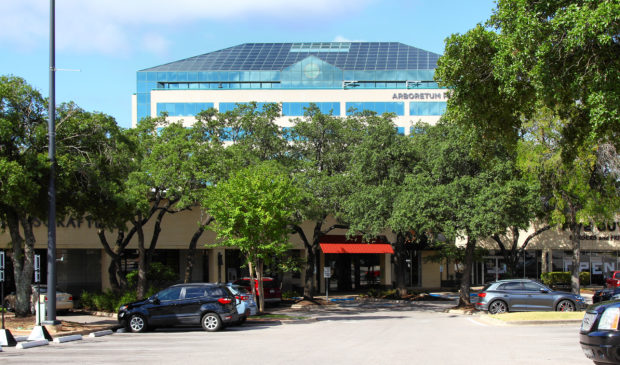
Of all the policies to arise from City Council’s decreed Austin Housing Affordability and Supply Week, the most substantial is allowing residential use in commercial zones, a move that could open up capacity for tens of thousands of new homes.
“Allowing residential in commercial I think can be very impactful,” said Council Member Ann Kitchen, one of many members in support.
The rule change, while certainly no silver bullet for Austin’s affordability woes, could increase housing supply by at most 46,324 residential units, according to a 2018 report by the Planning Commission.
The change is uncontroversial, with even those who often balk at Land Development Code changes on board. “This is something I think that there’s broad consensus about,” Council Member Alison Alter said.
The consensus also extends to disparate community stakeholders. Advocacy group HousingWorks Austin wrote in favor, as did Fred Lewis, Barbara McArthur and Michael Curry, three prominent neighborhood preservationists.
Because of a pending court ruling on whether citizen petitions count in broad rezonings, only anodyne policies were considered at Tuesday’s special housing meeting.
Austin Neighborhoods Council, a group that seeks to preserve single-family neighborhoods, does not support the change – or any changes for that matter – until the lawsuit runs its course.
Council looks set to initiate the code change on Dec. 9, via a resolution sponsored by Mayor Steve Adler. If approved early next year, the change would allow residential use in all CS, CS-1, GR, LR, GO and LO zoning districts – but only if developers reserve 10 percent of units for those making 60 percent of the median family income.
If developers opt for the residential option, site development regulations like those for Vertical Mixed-Use zoning would apply. These include design standards, lowered parking requirements and ground-floor retail.
The Planning Commission’s total unit estimate has one big caveat; it does not consider an affordability requirement. If the resolution’s affordability requirement proves too onerous, it could backfire, dissuading developers from building residential at all.
Council also discussed compatibility standards, which restrict building height near single-family homes. For now, Adler supports keeping compatibility as is. “I think that’s the appropriate next step today,” he said.
But compatibility could still be up for debate. Adler expressed concern that compatibility stymies housing supply – a common cry among housing advocates.
“Additional height, for example, in some instances, may not be able to be achieved because of compatibility standards,” he said. “I don’t know if there is some limited way to address compatibility in some of those situations.” Adler acknowledged that changing compatibility rules is a nonstarter for some members.
Photo by Larry D. Moore, CC BY-SA 4.0, via Wikimedia Commons.
The Austin Monitor’s work is made possible by donations from the community. Though our reporting covers donors from time to time, we are careful to keep business and editorial efforts separate while maintaining transparency. A complete list of donors is available here, and our code of ethics is explained here.
Posted In: Housing
Do you like this story?
There are so many important stories we don't get to write. As a nonprofit journalism source, every contributed dollar helps us provide you more coverage. Do your part by donating to the nonprofit that funds the Monitor.
"allow" - Google News
December 02, 2021 at 01:06PM
https://ift.tt/3IgKf1Q
To boost housing supply, Council to allow residential use in commercial zones - Austin Monitor
"allow" - Google News
https://ift.tt/2KTEV8j
https://ift.tt/2Wp5bNh
Bagikan Berita Ini















0 Response to "To boost housing supply, Council to allow residential use in commercial zones - Austin Monitor"
Post a Comment